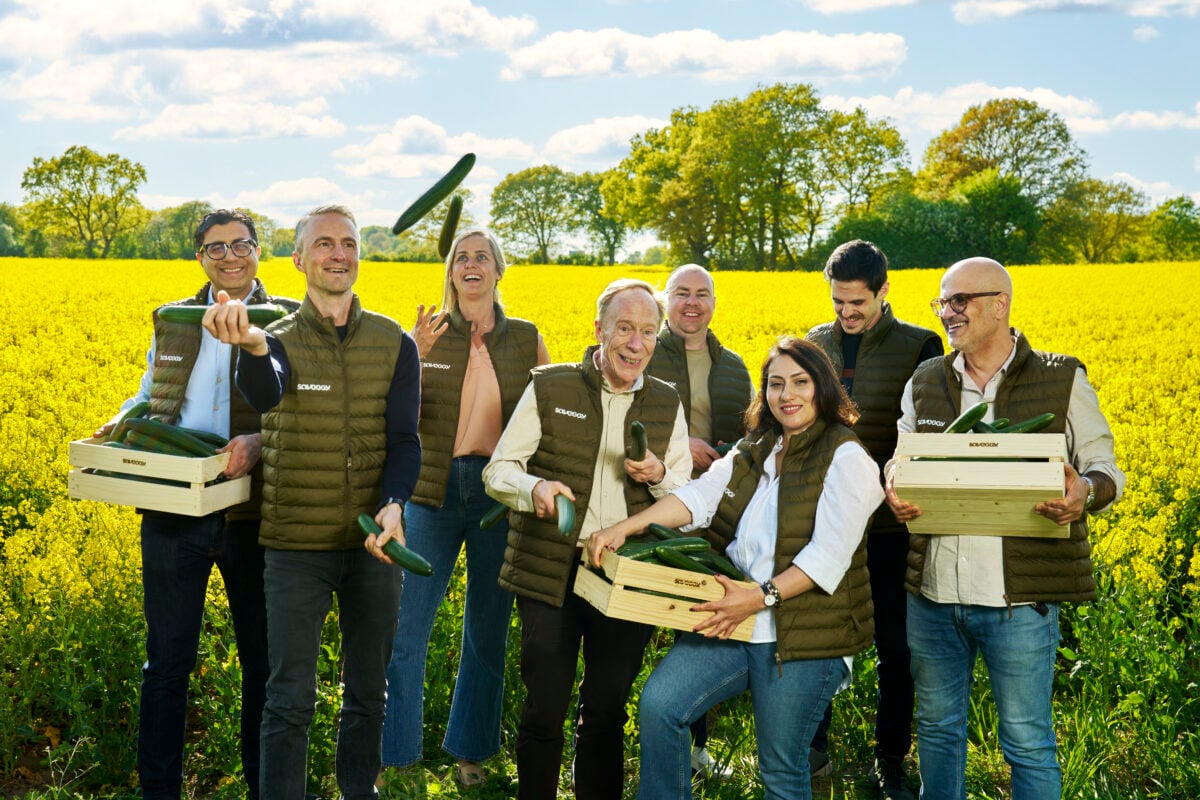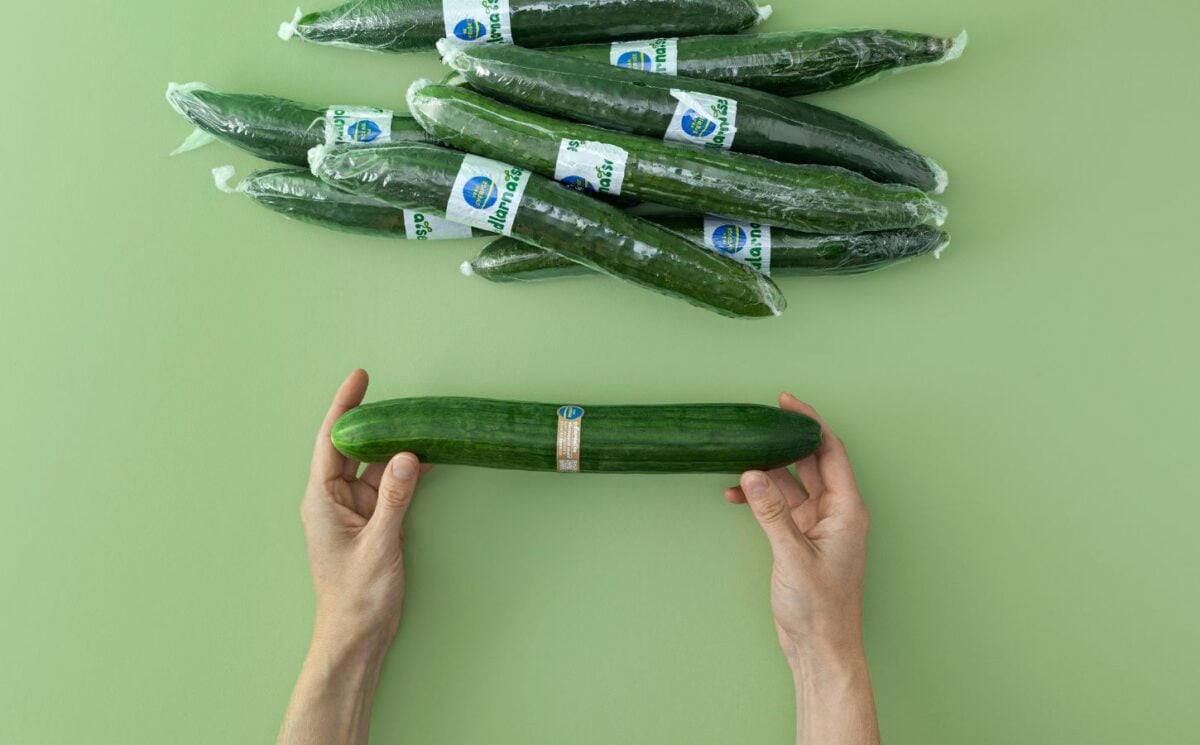A tech company has developed an edible plant-based coating for fruit and veg.
Swedish startup Saveggy’s plant-based coating could help replace plastic in the produce aisle by protecting fresh fruit and vegetables and extending their natural shelf life, all without relying on harmful single-use polyethylene.
Read more: Europe Is Investing More Than $2.5 Million To Promote Plant-Based Foods
Saveggy’s coating is made from just two ingredients, rapeseed oil and oat oil, and was developed in association with Lund University, Aarhus University, the European Institute of Technology (EIT), and stakeholders from across the value chain.
It is being trialled this month by major Swedish grocery store ICA and Odlarna.se, which produces 90 percent of the nation’s cucumbers. ICA could sell approximately 250,000 Saveggy-wrapped cucumbers at 700 stores during the trial period.
“A world premiere: crispy cucumber that lasts as long as a plastic package,” said the company on Instagram. “But with a thin, edible protection made solely of rapeseed oil and oat oil, completely without additives. Behind the news [is] years of research, close cooperation from growers to stores and a constant dialogue with you who shop.”
Saveggy was founded in 2020 out of frustration with plastic waste, and said more than 3,000 tonnes of plastic are used per year for cucumber packaging within the EU. That’s equal to more than 600 million plastic bags, or 800,000 plastic chairs.
Read more: UK Government Declines To Ban Bottom Trawling Four Months After Pledging To Do So
‘Food waste on one side, plastic-wrapped shelves on the other’

Saveggy founders Vahid Sohrabpour and Arash Fayyazi have raised €2.5 million from investors such as Fåhraeus Startup and Growth, LRF Ventures, Unconventional Ventures, Almi Greentech, and Smile Inject Capital. Saveggy is planning a larger funding round for 2026. If the trial period is successful, the plant-based coating could be expanded to other regions and other parts of the produce sector.
“Cucumbers highlight the challenge: food waste on one side, plastic-wrapped shelves on the other,” Fayyazi told Food Manufacture. “Our goal is to reduce food waste and plastic pollution together – with respect for nature, people, and the resources that make our food possible.”
Read more: The ‘World’s First’ Cultivated Meat Farm Is Coming To The Netherlands






